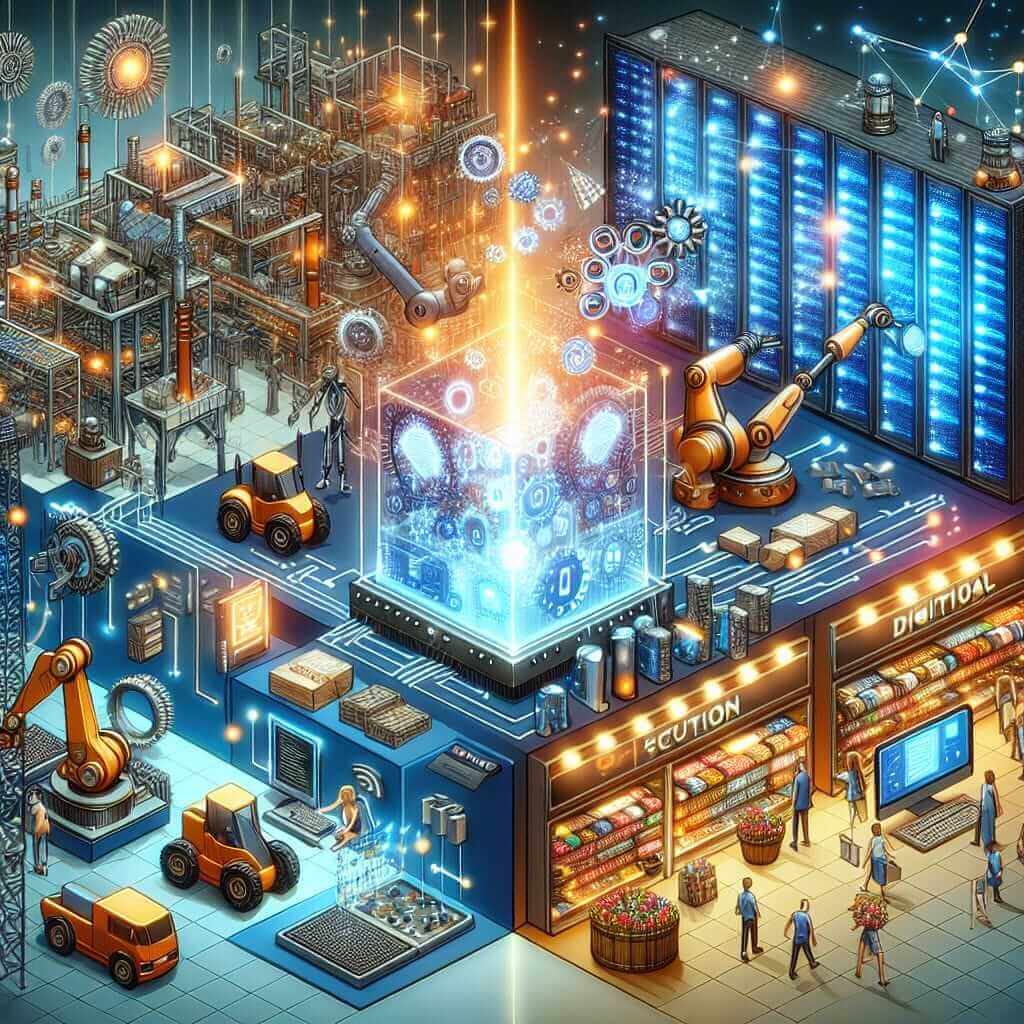“The impact of digital innovation on traditional industries” is a frequently appearing theme in IELTS Writing Task 2. This topic delves into how technological advancements are transforming established sectors and the implications for businesses and the workforce.
Here are some potential IELTS Writing Task 2 questions you might encounter on this theme:
- To what extent do you agree that digital innovation has brought more benefits than drawbacks to traditional industries?
- Many traditional industries are being transformed or even disappearing due to digital innovation. What are the main causes of this? What measures can be taken to help those affected?
- Some argue that the rapid advancement of technology will render many jobs obsolete in the near future. Discuss both views and give your opinion.
Sample Essay: Digital Innovation and Traditional Industries
Let’s choose the first question for our sample essay:
To what extent do you agree that digital innovation has brought more benefits than drawbacks to traditional industries?
Essay Analysis
This essay requires you to present a balanced argument, discussing both the advantages and disadvantages of digital innovation for traditional industries. You need to provide clear examples to support your claims and reach a well-justified conclusion stating your opinion.
Model Essay:
Digital innovation has profoundly impacted traditional industries, leading to a debate about whether its advantages outweigh its disadvantages. While there are undeniable challenges associated with this transformation, I firmly believe that the benefits are far more significant.
On the one hand, digital innovation has disrupted traditional business models and displaced workers. Companies slow to adapt to new technologies have struggled to remain competitive, leading to job losses in sectors like manufacturing and retail. For instance, the rise of e-commerce giants like Amazon has led to the closure of countless brick-and-mortar stores. Moreover, automation threatens jobs that require repetitive manual labor, raising concerns about unemployment and economic inequality.

On the other hand, digital innovation has unlocked unprecedented opportunities for traditional industries. By leveraging technologies like cloud computing, big data analytics, and artificial intelligence, businesses can optimize their operations, reduce costs, and enhance productivity. For example, manufacturers can use predictive maintenance to anticipate equipment failures and minimize downtime, while retailers can personalize customer experiences through targeted marketing campaigns. Additionally, digital platforms have expanded market reach, enabling businesses to connect with customers globally.
Furthermore, digital innovation has fostered job creation in emerging fields. The demand for skilled professionals in areas like software development, data science, and digital marketing continues to soar. Governments and educational institutions must invest in reskilling and upskilling programs to equip workers with the necessary skills to thrive in the digital economy.
In conclusion, although digital innovation presents some challenges for traditional industries, its benefits, including increased efficiency, global reach, and new job creation, far outweigh the drawbacks. By embracing digital transformation and addressing its potential downsides through proactive measures, we can harness its power to create a more prosperous and equitable future.
(Word count: 288 words)
Writing Tips
- Use specific vocabulary: Utilize terms like “digital disruption,” “automation,” “e-commerce,” “big data analytics,” and “cloud computing.”
- Provide real-world examples: Illustrate your points with concrete examples of companies and industries affected by digital innovation.
- Acknowledge both sides of the argument: Present a balanced view by discussing both the advantages and disadvantages.
- State your opinion clearly: Ensure your conclusion clearly expresses your stance on the issue.
Useful Vocabulary
- Digital Disruption (noun) /ˈdɪdʒɪtəl dɪsˈrʌpʃən/: The transformation of an industry or market due to technological innovation.
- Automation (noun) /ˌɔːtəˈmeɪʃən/: The use of technology to perform tasks previously done by humans.
- E-commerce (noun) /ˈiː kɒmɜːs/: The buying and selling of goods and services over the internet.
- Big Data Analytics (noun) /bɪɡ ˈdeɪtə ˌænəˈlɪtɪks/: The process of examining large data sets to uncover hidden patterns and insights.
- Cloud Computing (noun) /klaʊd kəmˈpjuːtɪŋ/: The delivery of computing services over the internet.
Conclusion
Mastering the vocabulary and arguments related to “The impact of digital innovation on traditional industries” is crucial for success in IELTS Writing Task 2. By practicing writing essays on this theme and familiarizing yourself with relevant examples and vocabulary, you can confidently tackle any question on this topic in the exam. Remember to analyze the question carefully, structure your essay logically, and support your ideas with strong evidence.